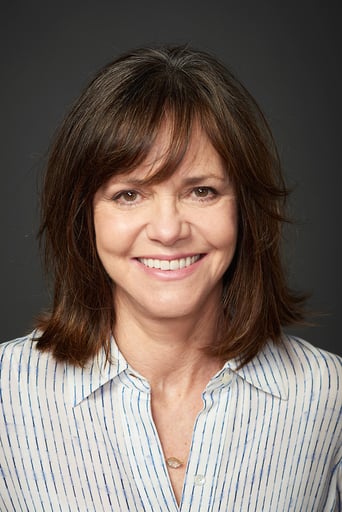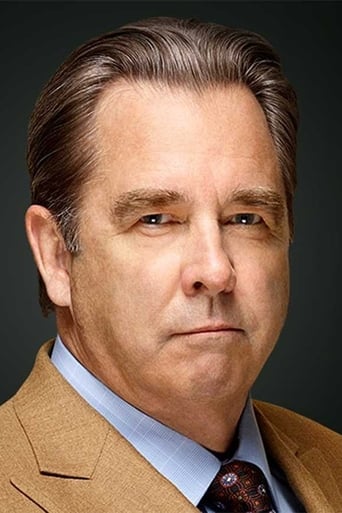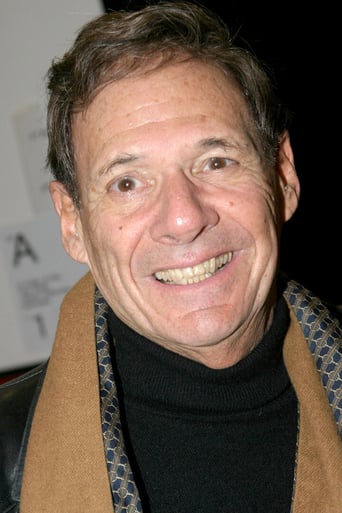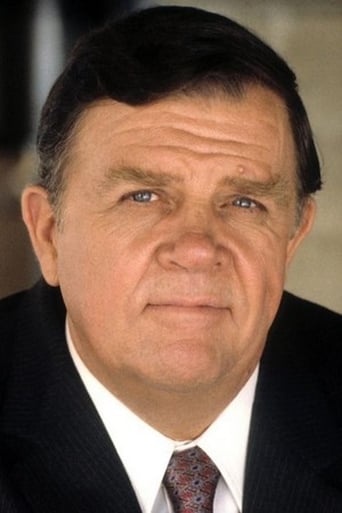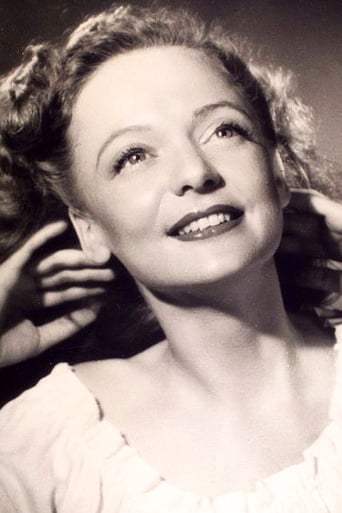Artivels
Undescribable Perfection
Hottoceame
The Age of Commercialism
ThrillMessage
There are better movies of two hours length. I loved the actress'performance.
Haven Kaycee
It is encouraging that the film ends so strongly.Otherwise, it wouldn't have been a particularly memorable film
GregP89
Excellent film, several yrs prior to 'Norma Rae' sally field took her acting abilities to a higher level with her performance in the 1976 made for TV film 'Sybil', essentially a remake of 'the Three Faces of Eve'. In fact, Oscar winning actress Joanne Woodward who won Best Actress for this latter film, was a Supporting actress in 'Sybil', an d portrayed the Therapist Counselor medical Expert working with Sally Field. Nonetheless, one of the Great "Travesties" that Actress Sally Field did upon winning the 1979 Oscar for Best Actress was forgetting to thank the love or her Life (at that time), Burt Reynolds ("who was in the audience seated next to her") during her acceptance speech. 21 yrs later, in 1998, Actress Julia Roberts would repeat the same mistake by forgetting to thank her Live-in-lover Actor Benjamin Bratt ('who was in the audience seated right next to her') during her acceptance speech, in winning Best Actress for 'Erin Brockovich' (2000).Both actresses upon received the script and looked to their lover and said "DO YOU THINK I CAN DO THIS PART?...I Don't THINK I CAN, I'VE not DONE ANYTHING LIKE THIS BEFORE.....OH DO YOU REALLY THINK I CANDO IT"?. Wisely, both Burt and Benjamin (TV series leading man) both told their girlfriends,..honey you can anything you can put your mind to....that's why i love you. Both actress auditioned for their respective roles...AND the "Rest is History".
AaronCapenBanner
Martin Ritt directed Sally Field to a best actress Academy Award in this biography of southern factory textile worker Norma Rae who meets Union organizer Reuben(played by Ron Leibman) who enlists her to help him organize her factory. Though reluctant, an incident with her father(played by Pat Hingle) who also works at the factory, inspires her to help, leading to hatred from management, which only escalates until she stands up with a "Union" sign...Beau Bridges plays her sympathetic husband Sonny.One the one hand, this is an expertly made and acted drama, with Field unforgettable in the lead. On the other, it must be acknowledged that this is lopsided dramatic storytelling bordering on propaganda, since no(and I mean zero!) attempt is made to show management POV, or indeed to humanize them, which weakens this film a bit, though its central message of course is well taken, and film can still be appreciated as long as viewer is aware of this narrative bias.
tieman64
This is a review of "Silkwood" and "Norma Rae", two of the more famous "women's pictures" of the 1980s. The better of the two, "Norma Rae" stars Sally Field as Norma Rae, a textile worker in small town North Carolina. Director Martin Ritt delves into Norma's social and home life, highlights the exploitation of both Norma and her fellow workers, and then introduces Norma to a Jewish unionist played by Ron Leibman. Ron teaches Norma the importance of solidarity, worker rights and battling for betterment. Sally, meanwhile, reveals herself to be a headstrong, blue-collar warrior; the brawn behind Leibman's brains.While "Norma Rae" does trivialise (it champions a "fairer capitalism", rather than examine the contradictions of capitalism itself), it does contain a number of good passages, most of which either compare Ron and Norma's differing social backgrounds or show the textile bosses strategically promoting dissenters and so pitting workers against workers. John Alonzo's cinematography is pitch perfect, gritty, intimate and pseudo-documentarian.Some have complained that "Norma Rae" is uncritical of unions, that the film neglects to mention that Norma's textile plant promptly shut down, and then go so far as to suggest that "unions are bad" because they "end jobs" and "chase jobs offshore". We see similar arguments today, banks, and the financial sector as a whole, which proclaim themselves as being "indespensible", threatening to pack up and leave countries if taxes are raised or stricter measures are put in place. Such things are typically used as "proof" for the benefits of less regulation. In reality, it's tantamount to blackmail.Directed by Mike Nichols, "Silkwood", another blue-collar whistle-blower picture, stars Meryl Streep as Karen Silkwood, a lowly worker at an Oklahoma nuclear facility. Along with her best friends (played by Kurt Russell and Cher), Karen begins to gather proof of her company's copious wrongdoings, which include poor safety measures, employee exploitation and radiation spills. Like "Norma Rae", the company bosses attempt to fight back, but can't seem to counter Karen's grit and determination. Both film's are overly sentimental, deal in very broad stereotypes (bad bosses, good exploited workers, saintly activists etc), but mask their deficiencies well with their low-key tones, naturalistic acting and strong, small town atmosphere. Their ancestors are King Vidor's "Our Daily Bread" and Michael Wilson's "Salt of the Earth". Their children are everything from "Matewan" to "North Country" to "Erin Brokovich" to "The Insider" to Ken Loach's underrated "Bread and Roses". The tale's familiar, and is habitually resuscitated every now and then.Unlike most films in this genre, "Silkwood's" hero is actively stalked, hounded and murdered by the shadowy corporations she locks horns with. In real life, the nuclear facility at which Karen worked (Kerr-McGee) was rumoured to have strong ties to the US Government, the CIA and the NIA. As Karen was about to whistle-blow on the illegal sale of nuclear grade plutonium, some believe she was assassinated. In the 1970s, women like her spearheaded the anti-nuclear movement, which has been successful in stopping the construction of nuclear plants, which even today are constantly being offered as "clean", "carbon free", "reliable energy sources".8/10 - Overrated, simplistic, but well acted. Worth one viewing. See "Bread and Roses".
John T. Ryan
WHAT an unusual film! NORMA RAE (20th Century-Fox, 1979) is a totally studio created and produced movie! Even then, in 1979, this production is an anachronism in Tinsel Town where more, and more, the big studios became partners to independent producers and landlords to those same small production companies; who become willing tenants for the large studio sound stages, sets and back lots.IT has been said that we have 3 social classes in the United States of America; being The Upper Middle Class, the Middle Class and The Lower Middle Class. These terms are, of course euphemisms or rather Code Words; for after all, no American wants to admit that he is a member of any old "Working Class"!! I mean, that's just so 'Proletariat'APPARRENTLY 20th Century-Fox wasn't fearful of doing an American Working Class film; for they did so; not just once, but in two movies released very close to each other and later booked as a double bill. The other title is BREAKING AWAY (20th Century-Fox, 1979); which of course was about the four young friends, a year after high school, meandering through life aimlessly, doing nothing. (Yeah, Schultz, it's the movie with the bicycle race!) ORGANIZED Labor and the attempt to bring union representation to a textile company in the Southern U.S. is the story here. It brings us into contact with the lovely Miss Sally Field, portraying the heroine/protagonist, Norma Rae (Herself). Through several on the job incidents, such as the heart attack and death of her Father, Vernon (Pat Hingle); who is refused permission to leave the line when he experiences stroke/heart seizure type symptoms.WELL call me a softy, but that sure seems like a good reason to take up arms on behalf of having a union in a company.REPRESENTING the international union is organizer (often called 'agitator'), Reuben (Ron Leibman); who, being an outsider, has trouble getting locals to support or even consider the notion of having a representation election in the plant. When Norma starts her protest, he at last has an ally.THE story also deals with the attitudes of the local townspeople toward Miss Norma as the company's union busting campaign machinery gets rolling. Whereas Norma has a couple of kids, previous to her marriage to the loyal and most patient, ,Sonny (Jeff Bridges), she also has one who is illegitimate. Norma forewarns her children and tells them to be prepared to hear more lies. There was even, in the story, mention made of a rumor that Norma had made a Stag Movie with a Cop! (This we found to be most amusing and the biggest laugh in the roughly 2 hours on screen.) OTHER than the personal story of a young woman (Based on a real person involved in the long lasting J.P. Stevens Company's struggle to keep unions out of its domain. Unbelievable as it may sound, at one point J.P. Stevens Company was paying $1,000,000.00 per DAY in fines rather than even begin to allow a representation election.IN a general sense, NORMA RAE is all about the working class people in the U.S.A. and how they (us?) are viewed by the Liberal Press and by the Motion Picture Industry and the related Entertainment Industry. This brings us to what is most important to me in writing about the picture.NORMA is a member of that very Working Class and is not a very refined Lady. She has been around the block several times with regard to her relationship with men. (She was a woman who didn't have an enemy in the world; or as we used to say, "She's just like a door knob. Everyone gets a turn! ALL of that considered people in the Working or Blue Collar stratum in our country and world deserve decent treatment and should not be referred to as "Trailer Trash" and the like. It is indeed a study in hypocrisy that those same elitists would not dare call any Blacks of the same socio-economic rung of the ladder by any derogatory terms, yet express such contempt of people who are classified as being "White".NOTE: * Speaking of Awards, we wonder why no recording of the Oscar winning original song "It Goes Like It Goes" was ever released. For that matter, there was no NORMA RAE original soundtrack album, either. (And the score also claimed an Oscar for David Shire and Norma Gimbel. Hey 20th Century-Fox boss, Rupert Murdoch, it's not too late! POODLE SCHNITZ!! . '



